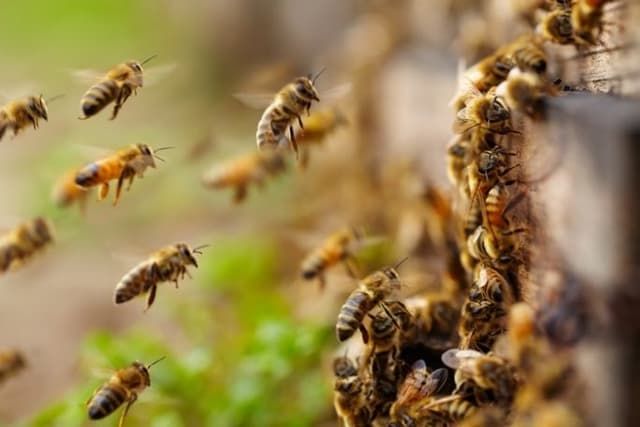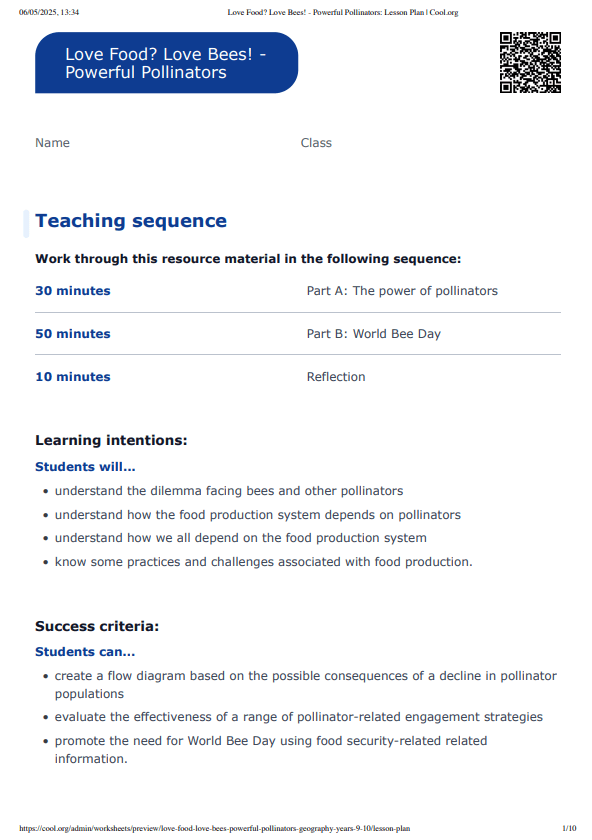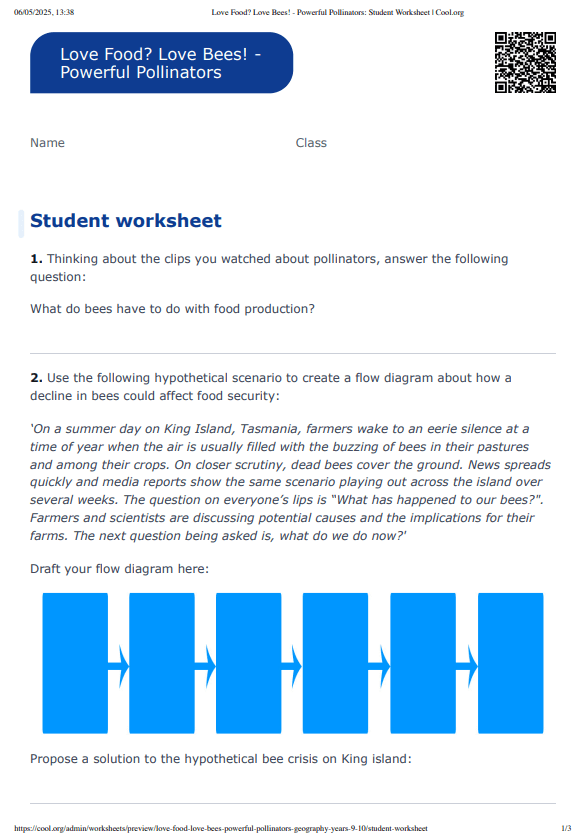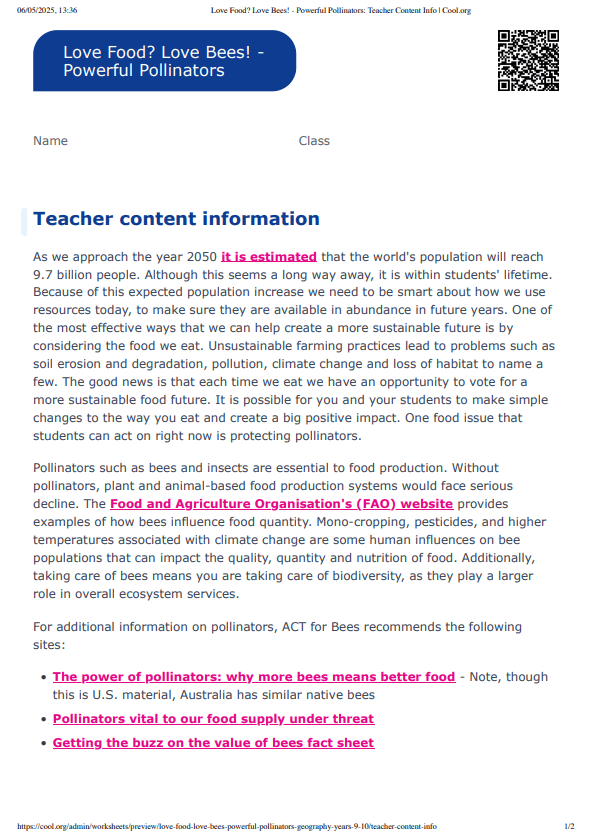
Powerful Pollinators
Lesson2 of 6 in this unit
SecondaryYear 9 - 10Humanities and Social SciencesGeographyEnvironmentalBiodiversityLand ManagementSustainability
Summary
Lesson Guides and Printables
Lesson Plan

Student Worksheet

Teacher Content Info


Lesson Plan

Student Worksheet

Teacher Content Info
